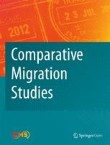Following globalization and transnationalization trends, emigrants have increasingly obtained voting rights, but also specific representative institutions and direct representation in the national parliament in their country of origin. These reforms have important political and electoral consequences and constitute opportunities and challenges for political parties who face the choice of engaging or not in this new arena. Combining the literature on transnational politics and classic theories of party organizations, this Special Issue investigates (1) what parties abroad are, (2) when and why do they emerge and develop, (3) how they organize, and (4) what role they play.
The Special Issue intends to propose a framework for analysis of political parties abroad. All papers use original data to address the questions of the organization and functions of parties abroad. In doing so, they contribute to a better understanding of transnationalism, long-distance democracy, and party politics.
Edited by Emilie van Haute and Tudi Kernalegenn
